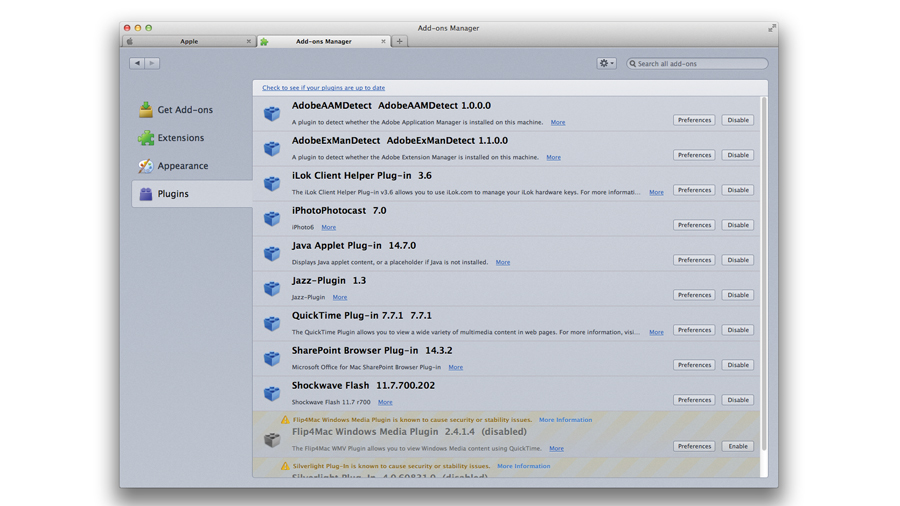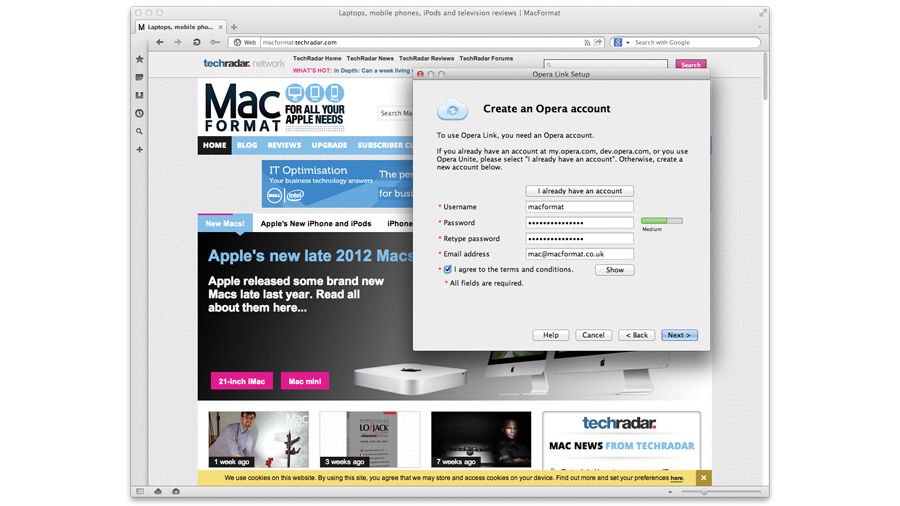Best Mac browser: pick the best Safari alternative for you
We pitch Apple's browser against the popular alternatives
In fact if you can think of something you'd like to be able to do more quickly and easily, or without navigating away from your current window, there's probably an Extension for it. You can also now run apps from the web store, and there are plenty of these that run inside Chrome.
That syncing feeling
Chrome doesn't support iCloud, but then only Apple's own apps do. If you sign in to Chrome using your Google account however, you can achieve the same kind of syncing, automatically updating content across all your devices that are signed in with the same details. You can add an app on one computer and it will be available on others, sync themes, extensions, bookmarks and passwords and even share autofill form information across devices.
As well as being a timesaver, this means that all your bookmarks and passwords in Chrome are backed up, should anything happen to one of your devices.
Mozilla Firefox
Firefox is a mainstay of the alternative browser scene, but can it still cut it?

Firefox was for years the best browser that wasn't produced by a big corporation. Powered by the Gecko rendering engine, it helped to pioneer concepts such as tabs and extensions. Run by a not-for-profit organisation called Mozilla, it remains popular with many web users and has recently moved into the mobile space, with a browser for Android.
Although the competition has caught up in some ways, Firefox remains a great browser with powerful features not found in Safari or IE, and even some that aren't in Chrome. Firefox uses what it calls an 'Awesome Bar', which is similar to the unified URL/search bar found in Chrome and Safari. Type into it to search bookmarks, history and any open tabs for exact matches and partial matches. So, for example, if you viewed a web page on the subject of 'holidays' but couldn't remember the URL, typing 'holidays' into this field would suggest that page, since it probably would have the word in its description.
Tabbed browsing is powerful too, and it's possible to pin tabs to keep them always open, rearrange them and separate tabs off to new windows. Recently and frequently visited sites can be viewed in a special window for easy selection.
Sign up for breaking news, reviews, opinion, top tech deals, and more.
Fully featured
There's integrated search, and you're able to customise the list of search engines available to you. You can assign keywords to search engines, so if you assigned 'books' to, say, Amazon, searching for 'books fishing' would run that search directly on their website. There's some great timesaving stuff too, such as a password manager, an automatic form complete feature and the ability to sync passwords, bookmarks and other data across multiple computers, though sadly there is no Firefox for iOS. A feature called Session Restore recalls windows, tabs, downloads and even half-typed emails if your session is cut off and you need to restart the browser.
Firefox supports Add-Ons and has a slick manager system for working with them. Outdated Add-Ons are identified and can be updated or disabled, and you can set preferences for existing ones. The Add-On store has thousands of free tools, allowing everything from blocking ads to enabling quick translation of web content.
The browser can be themed to change appearance and it is regularly updated to add features and ensure maximum security.
Opera
Singing the praises of this speedy browser - but what makes it so different?

Opera has always been one of the lesser-known browsers but it's got a few tricks up its sleeve, not least its availability across multiple computer platforms, smartphones, regular mobiles and tablets. Lightweight and free, the Mac version feels slick and streamlined, even if feature-wise it isn't quite as advanced as some of its competitors.